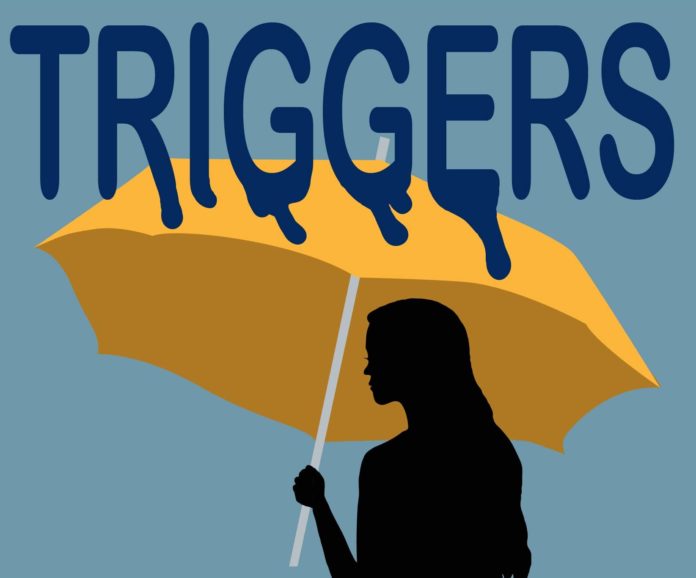It’s been everywhere lately. In the era of #MeToo stories, accusations of sexual misconduct and sexual assault have been all over the news, as they should be. Whether it be Harvey Weinstein, Louis C.K., Bill Cosby or Brett Kavanaugh, it is almost impossible to escape discussion of sexual violence.
This week, if you turn on the news, open a paper or scroll through Twitter or Facebook, it is more than likely you will see conversations about sexual assault accusations. This news cycle – this constant dialogue about sexual assault – can be helpful, but it can also be hurtful. For survivors of sexual assault, it can be triggering and extremely difficult to deal with.
Seeing sexual violence in the news can illicit negative reactions such as flashbacks and anxiety attacks as well as depression and irritability among sexual assault survivors.
It is OK to feel this way. It is OK to feel affected by the content of the news. Healing is not linear, and, for some, “healed” may not be a destination; it may be a constant, conscious effort. Recovering from sexual assault is a process and a journey; feeling triggered is in no way indicative of your overall progress. Everyone heals differently. Don’t judge others or even yourself for how you need to take care of yourself. Your feelings are valid simply because you feel them.
You are in control of what you watch and listen to. You do not owe it to anyone to be informed on these issues. You do not owe your opinion on these issues to anyone. It is OK to take a break, turn off the TV and step away from social media. If you don’t care to see unsolicited opinions on sexual assault, mute people who are sharing. Spend time doing and talking about things you enjoy.
If you do feel empowered and compelled to share and discuss your thoughts on the current news stories, go for it. Speak out. Use your voice. But don’t demand anyone’s opinion or engagement on the topic.
This week, the Lariat will be reporting on topics that deal with sexual assault, we will publish editorials and opinion columns that discuss sexual violence, domestic violence and abuse. You don’t have to read them. This is your trigger warning. Take time away from the news if you need to.
This is also a great time to reach out to your friends who might be struggling. This may not be a big deal to you, but it is probably affecting someone you know and love. According to the National Sexual Violence Resource Center, one in five women and one in 71 men will be raped at some point in their lives. One in four women will be sexually assaulted in college and nearly two-thirds of college students experience sexual harassment. Ask if your friends are OK. See what you can do to help. Listen and provide support.
If you are struggling, seek support. Reach out to your friends, utilize Baylor’s resources like the counseling center; don’t go through this alone.





